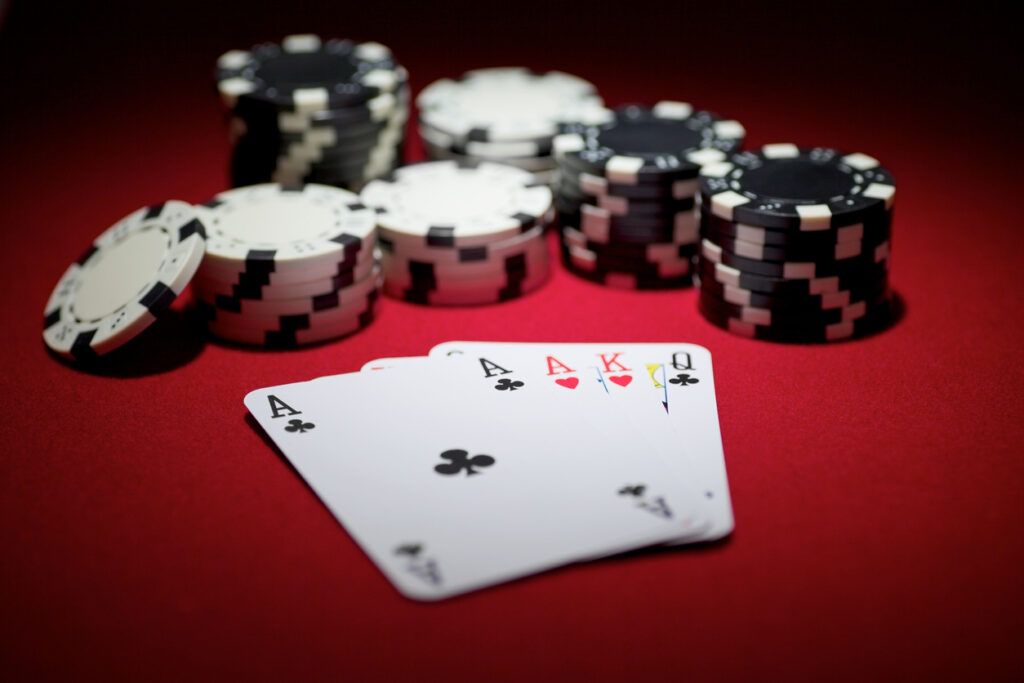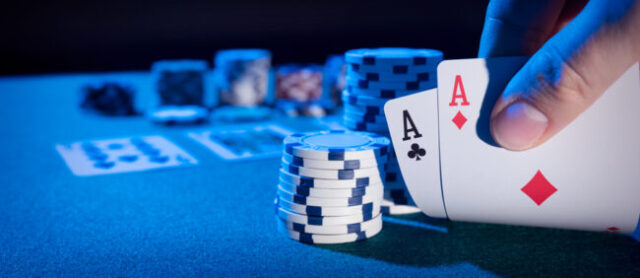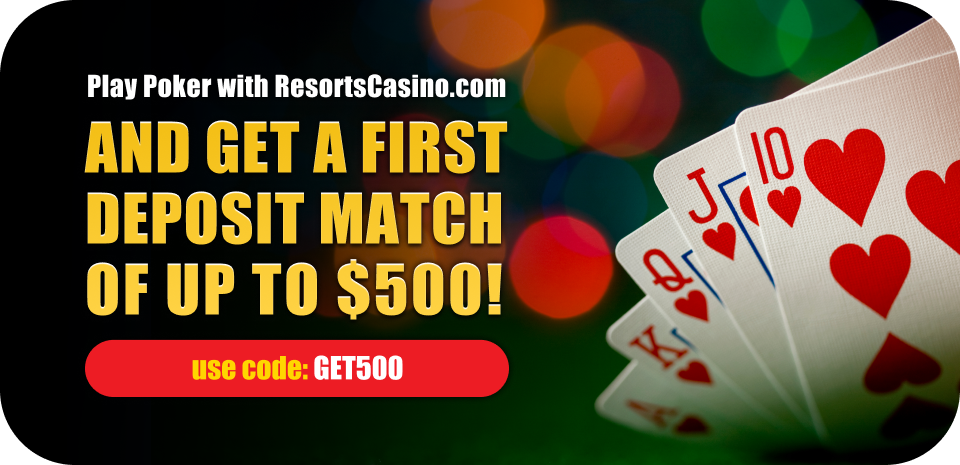When to Bluff in Poker
Poker is one of the most well-known games in the world, and the best players understand the art of bluffing. Bluffing in poker is an important part of basic strategy, and mastering it will give you the chance to win big even with mediocre hands. This blog post looks into poker bluffs and how players can hone their skills. We also take a look at some of the best examples of effective bluffing in the industry.
What does it mean to bluff in poker?
Many players wonder “what is bluffing in poker?”
Bluffing in poker refers to making a bet with the intent to convince other players to fold. More specifically, players who bluff are usually hoping to appear confident enough in their hand, regardless of its contents, to make opponents with better hands fold. The more hands that fold, the more likely you are to win. The art of bluffing in poker strategy is not as simple as making high bets at random times during the hand, however, and it is imperative to understand when and how to bluff.
Some players might be tempted to ignore bluffing in online poker; however, it is a critical part of smart, skilled plays and basic poker strategy. Bluffing allows you to exploit the weaknesses of your opponents. Consider an overly aggressive player who blindly bluffs all the time, both when their hand is good as well as when it is not. It is easy to spot this kind of behavior and use it to your advantage by calling down lighter against them or even simply by allowing them to drive up the pot when you have a strong hand. You do this by bluffing to make it seem as though you have a hand worth fighting.
When should you bluff in poker?
Aggressive players are usually successful players in poker, and bluffing is an aggressive strategy used by some of the most skilled players in the industry. Knowing when to bluff and when to just keep your head down and play your hand (or fold) is an important part of successful poker bluffs. The aggression must be carefully timed, in other words, so that it does not become one of your tells.
Here are some things to consider when considering if you should bluff.
Gameplay dynamics
Ideally, this factor will be worked out before the game begins in earnest. Study the players around the table, assign them player types, and note their positions. When you have this basic information about the dynamics of your table, you can assess how they impact the gameplay. A consistent weakness, for example, might be something to note. You can use this information to read future hands and inform your bluffs so that they are timely.
Number of players
As the number of players in the hand increases, the number of bluffs you make should decrease. When there are many players in the game, it is more likely to encounter someone with a part of it. This means you run the risk of having your bluff called. As the number of players to a hand decreases, however, your tendency to bluff can also increase.
Stakes
Bluffing can be done at smaller stakes, but not as well as when a bit more money is in play. When the stakes are too low, people are more likely to call because they will not lose too much money even if they make a mistake. The real test comes from high-stakes games. This is when players begin to analyze their every move to calculate how much money they stand to lose. If you want to bluff successfully, in other words, and really hone your skills, play for higher stakes.
Your image
What kind of player are you, and what kind of actions have you taken lately? Before you can decide when to bluff, you must first understand how other players see you. Remember that just as you analyze your opponents, they analyze you for the same tells and weaknesses. Do other players see an aggressive player who bluffs all the time, or a player who seems to play a more balanced game? If the former is closer to your image, you should consider slowing down the bluffs. If it is the latter, however, you are in a better position to bluff believably.
Be aware of tells
Being able to identify your tells as well as those of other players is an important part of timing bluffs. First, pay attention to how your opponents play. Do they do anything before they play a value hand, before they hold, or when they bluff? This information can help you estimate what kind of hand they have and decide to bluff or not accordingly.
At the same time, you should hide your poker tells as much as possible. Do not give your opponents information to help beat you! You must understand your tells and how to hide them if you are hoping to make well-timed bluffs that yield results. The best bluff is played when other players don’t see it coming.
Poker bluffing tips

While there are a few different tips for good bluffing in poker, we have selected three of the most important to describe below.
Read your opponents
Bluffing is only one part of the equation, and it only succeeds if your opponent buys it. “Hand-reading” refers to guessing the strength of an opponent’s hand. By doing this, you can make better decisions about when to bluff. If the other player has an incredible hand, bluffing probably will not result in a fold. If their hand is middle-of-the-road, however, you stand a better chance.
Hand-reading is a skill that can be acquired and trained over time, so do not give up if the concept feels difficult. All you have to do at first is pay attention to other players and how their behavior corresponds to their bets and their cards.
Don’t be the villain
This might sound counterintuitive when the goal is to trick other players into folding their cards, but do not be the villain of the game. The goal is to assess perceived weakness and guess from where it stems. This knowledge can help you decide when and how to bluff. Attacking any show of weakness blindly is not effective, nor will it win you any friends. There are certainly actions that can be countered, but take some time to consider the best way to do so, as well as whether countering and bluffing is in your best interests.
Be smart with bet sizes
Understanding when to bluff is important, but knowing how much to wager is equally so. The goal here is to make bets that are consistent across hands. If your bets with genuinely good cards are much higher than your bluff bet size, other players might be able to tell when you are bluffing purely from the size of the bet. By making all bets more or less uniform regardless of hand quality, on the other hand, it will be much harder to detect when you are bluffing.
Best poker bluffs
How important is bluffing in poker? Let’s look at some examples of the best bluffs in poker history to get a handle on their place in solid poker strategy.
Chris Moneymaker – World Series of Poker (2003)
In 2003, Chris Moneymaker was a poker amateur when he won the World Series of Poker. Even more impressive, he won with an underwhelming hand. Chris bluffed despite having nothing impressive in his cards, and his opponent Sammy Farha bought it. Despite having a pair of nines, Sammy folded, giving Chris the win in a game he otherwise would have lost.
Tom Dwan – High Stakes Poker (Season 5)
Another example of how devastatingly effective bluffs can be is Tom Dwan’s bluff in season five of High Stakes Poker. Tom managed to grab the win after raising the pot to $37,300 despite not having a very strong hand. This led to four of his opponents folding, raising the pot to an astonishing $104,200, and led to his last two opponents – both of which had stronger hands than Tom – folding. Tom won the game and landed a place in bluffing history.
Isaac Haxton – Poker Stars World Poker Tour Caribbean Adventure (2007)
In 2007 at the Poker Stars World Poker Tour Caribbean Adventure, Isaac Haxton demonstrated his knowledge of when to bluff in poker. Isaac and Ryan Daut faced off with a flurry of highly effective bluffs, including Isaac’s all-in for $7 million, leading Ryan to fold. This handed Isaac a huge victory with only a three-high hand.
As you can see, optimal bluffing strategies in poker are an important part of foundational poker strategy. If you want to be the best player possible, take some time to practice bluffing and do more detailed research into the topic.
If you want to learn more about poker, we have articles for you!





Pingback: Poker Hands Rankings and Their Meaning